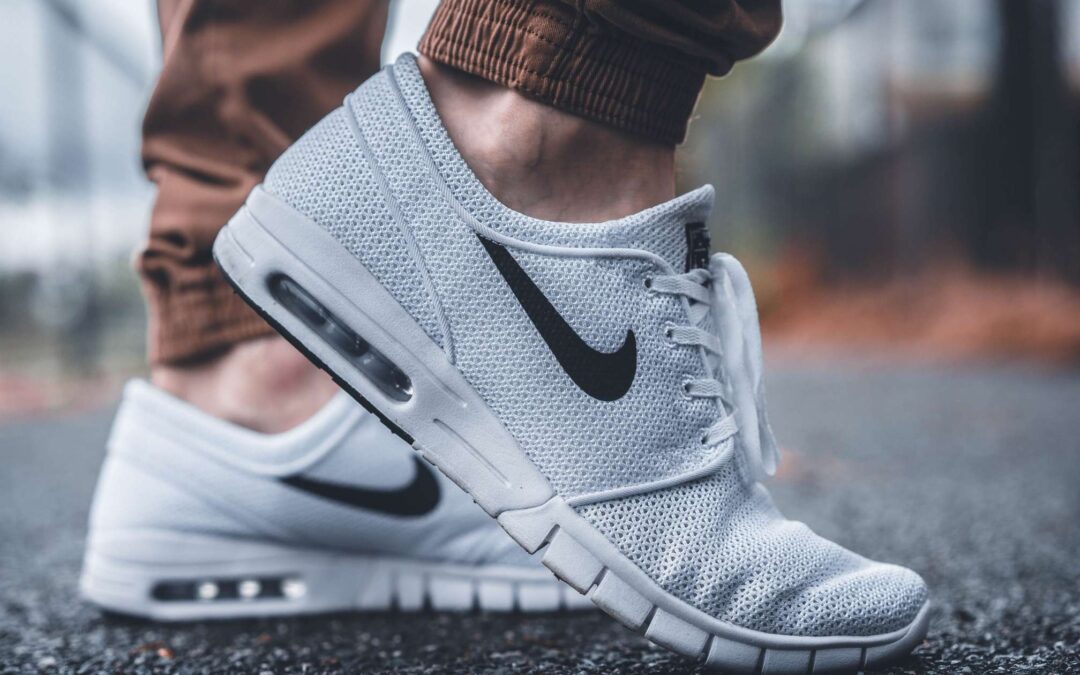A recent Nike trademark lawsuit has raised NFT questions that have people questioning the laws and rules surrounding NFTs, trademark law, and copyright ownership.
The popularity of NFTs has exploded in recent years – and as they continue to grow in popularity, many brands and NFT investors are beginning to stray into uncharted territory – specifically when it comes to copyright and trademark law.
A recent lawsuit filed by Nike has raised NFT questions regarding trademark law. Here’s everything you need to know.
New Lawsuit Raises NFT Questions About Trademark Law
NFTs (non-fungible tokens) are digital files stored on a blockchain that you can sell or trade online. Each digital file has its own unique identity. An NFT can represent videos, real estate, artwork, music, or collectibles. NFTs are essentially digital certificates of authenticity stored online.
StockX, an online retailer that allows consumers to buy and sell items like sneakers, collectibles, and streetwear, recently created an NFT program that enables people to purchase NFTs of sneakers. Users buy the NFT to certify the sneakers’ ownership before receiving the product.
When the sneakers become available, StockX allows the NFT owners to exchange the NFT for real-life sneakers. They can also trade the NFTs as digital goods.
Unfortunately for StockX, Nike sued them for trademark infringement. Nike claims that StockX did not receive approval or authorization from Nike to link their NFTs to Nike products.
Nike also says that StockX used the Nike brand to market NFTs and sell them at inflated prices.
In response, StockX states that Nike has mischaracterized StockX’s service offering. They say that their NFTs represent direct proof of ownership of the goods they store.
Essentially, StockX claims that their NFTs are not digital sneakers, but they instead represent what StockX has in stock at the moment. Customers can use their NFTs to trade current in-stock products with other StockX customers.
What About Trademark Law?
Online retailers are legally allowed to resell items without the trademark holder’s authorization. StockX says that this is exactly what they are doing – simply reselling Nike products.
But instead of selling the actual products, StockX is selling NFTs that stand in for the products. Nike claims that StockX uses these NFTs as a separate product and profits from it by using the famous Nike branding.
This lawsuit raises this question: is StockX NFTs a separate product?
StockX states that its NFTs track the ownership and transactions associated with each product. Each product goes through an authentication process and is not affiliated with any third-party brand names. The trademarks used in the NFT belong to the trademark owners and only refer to the physical product StockX has in stock.
As of now, trademark and copyright laws associated with NFTs continue to raise many questions and spur many new conversations. If you’re thinking about buying an NFT, it is crucial to avoid legal trouble. Make sure that you understand the new laws associated with them, particularly when it comes to trademark and copyright.
Do you have any NFT questions? Get help from a business law professional.
If you are purchasing an NFT, you must understand what you are purchasing and any rights attached to the NFT you are purchasing. It can be a complicated process, which is why it is critical to speak to an attorney who has experience with NFTs and copyright challenges and opportunities. A business attorney can help you better understand the laws surrounding NFTs.
If you have questions about laws that apply to NFTs – including ownership and copyright laws – and want help developing a legally binding contract, we can help. Don’t hesitate to call 303-780-7333 or schedule an appointment online.
Enjoyed this article? Check out these other blogs for more information:
- Why Business Management for Startups is Essential for Growth
- Which Scenarios Will Result in House Arrest or Jail?
- Understanding How Constitutional Law Affects Your Business



